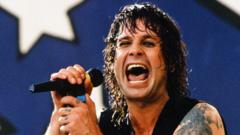In the wake of Pope Francis's passing, the cardinals set to elect his successor are facing a crucial debate about whether to continue his progressive vision or revert to traditional practices, reflecting broader questions about the future direction of the Catholic Church.
The Legacy of Pope Francis: A Turning Point for the Catholic Church

The Legacy of Pope Francis: A Turning Point for the Catholic Church
As the conclave assembles to elect a new pope, cardinals grapple with the choice of sustaining Pope Francis's legacy or charting a new course for the Church.
As the cardinals prepare for the conclave in the Sistine Chapel, they find themselves at a pivotal crossroads following the death of Pope Francis. The discussions among them are not just about choosing a new pope; they are also about determining the future trajectory of the Catholic Church in the context of Francis's significant impact during his 12-year pontificate.
The choice is stark: will they appoint a leader who embraces Francis's progressive ideals or one who seeks to revert to more traditional values? This debate mirrors what many have termed a referendum on Francis’s legacy, exploring topics that range from inclusivity to moral leadership on the global stage.
Cardinal Anders Arborelius of Sweden, who is among the potential candidates, reflects the tension within the group, noting, "There are various wishes." Some cardinals express a desire to continue the "Francis effect," which aims to engage lapsed Catholics and attract new followers through a more inclusive approach. Others, however, resist this trend, suggesting that a departure from Francis's methods could be necessary.
Francis made headlines for his progressive stances, igniting discussions that captivated both the secular world and the church community. From his famous remark on gay priests—“Who am I to judge?”—to his vocal support for migrants and critiques of climate inaction and economic exploitation, Francis redefined the papacy's role in contemporary issues.
As these cardinals hold their private conversations and public discussions, the future of the Catholic Church hangs in the balance—teetering between a continuation of Francis's progressive vision and a return to the Church's conservative roots. The outcome of this conclave may well define the Catholic Church for generations to come.





















